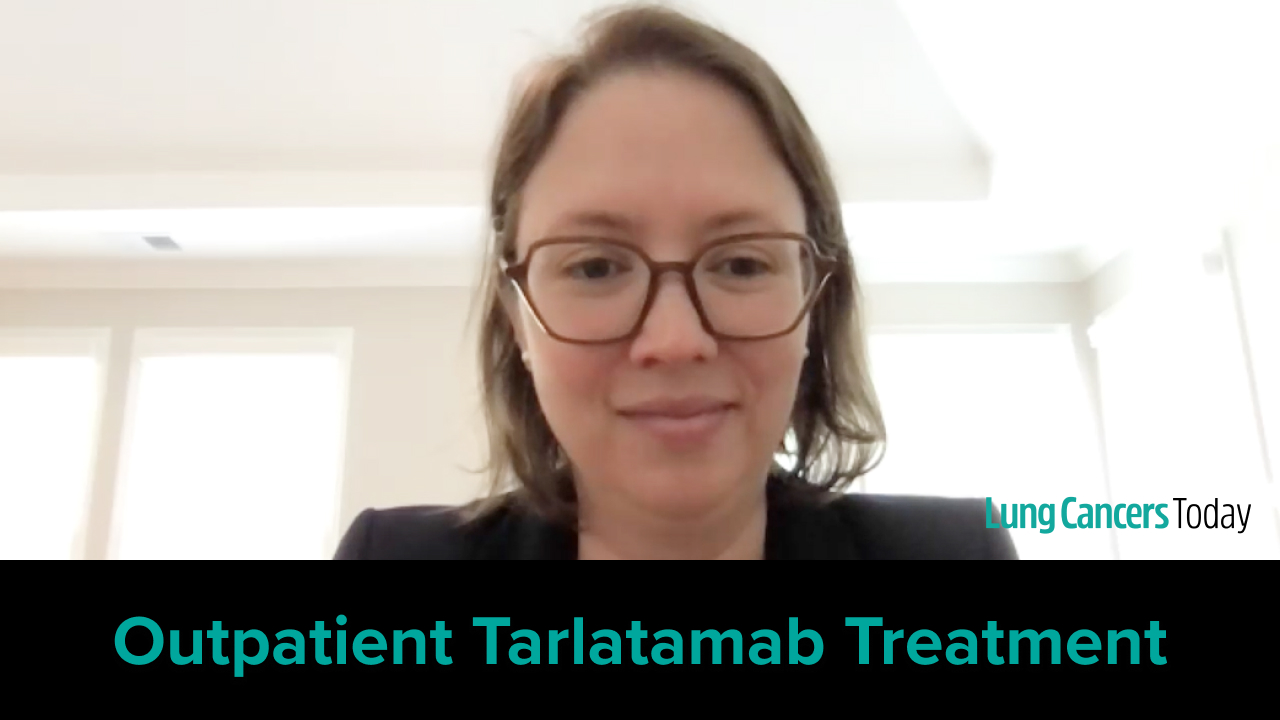
The European Medicines Agency Committee for Medicinal Products for Human Use has recommended that durvalumab (Imfinzi, AstraZeneca) receive approval in the European Union as a monotherapy for adults with limited-stage small cell lung cancer (LS-SCLC) whose disease has not progressed after platinum-based chemoradiation therapy.
This recommendation is based on results from the phase 3 ADRIATIC trial, according to an announcement from AstraZeneca. The results of the study, published in The New England Journal of Medicine, showed that durvalumab reduced the risk of death by 27% compared with placebo (overall survival [OS] hazard ratio, 0.73; 95% CI, 0.57-0.93; P=.0104).
Suresh Senan, PhD, professor of clinical experimental radiotherapy at the Amsterdam University Medical Centers, the Netherlands, and principal investigator in the trial, explained the impact of the ADRIATIC results and CHMP recommendation.
“ADRIATIC was the first Phase III trial in decades to demonstrate a survival benefit in limited-stage small cell lung cancer, reducing the risk of death by 27 per cent in patients treated with durvalumab versus placebo,” Dr. Senan said in a statement. “Today’s positive recommendation from the CHMP means that our patients in Europe are one step closer to gaining access to this practice-changing treatment regimen.”
The estimated median OS was 55.9 months for patients receiving durvalumab, compared with 33.4 months for those receiving placebo. The estimated 3-year OS rate was 57% for patients receiving durvalumab, compared with 48% for those receiving placebo.
Susan Galbraith, executive vice president of Oncology Haematology Research and Development at AstraZeneca, also weighed in on the positive CHMP recommendation.
“With 57 per cent of patients still alive at three years in the ADRIATIC trial, Imfinzi has the potential to transform treatment for people with limited-stage small cell lung cancer,” she said in a statement. “If approved, these patients will have access to immunotherapy for the first time, redefining expectations of survival outcomes in this setting.”
The median progression-free survival (PFS) was 16.6 months among patients receiving durvalumab, compared with 9.2 months among those receiving placebo. Durvalumab reduced the risk of disease progression or death by 24% compared with placebo, with a PFS hazard ratio of 0.76 (95% CI, 0.61-0.95; P=.0161). The estimated 2-year PFS rate was 46% among patients receiving durvalumab, compared with 34% among those receiving placebo.
The safety profile for durvalumab was “generally manageable and consistent with the known profile of this medicine,” with no new safety signals observed, officials said.
Durvalumab is approved in the US and other countries in this setting based on the ADRIATIC trial, officials said in the announcement, noting that “regulatory applications are currently under review in Japan and several other countries in this indication.”
Source: AstraZeneca







 © 2025 Mashup Media, LLC, a Formedics Property. All Rights Reserved.
© 2025 Mashup Media, LLC, a Formedics Property. All Rights Reserved.